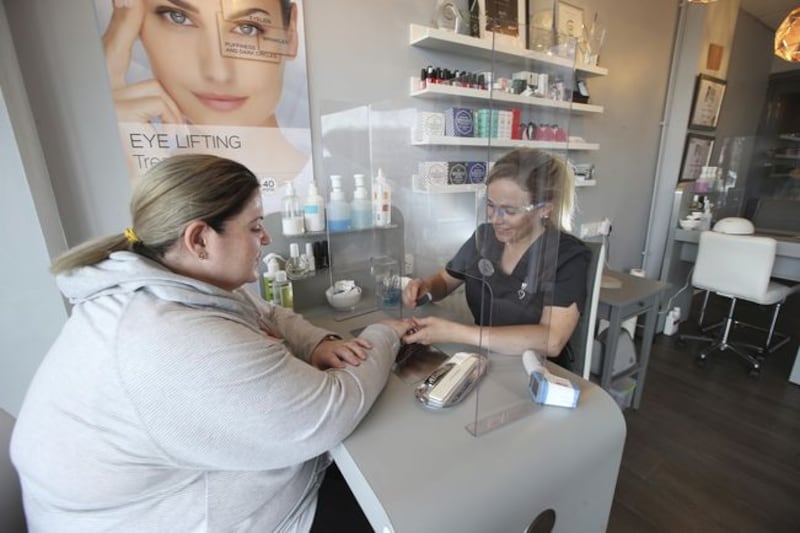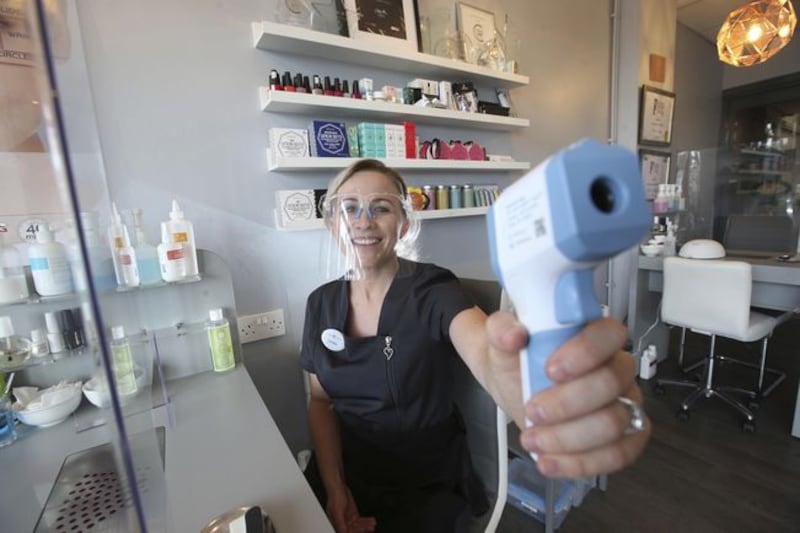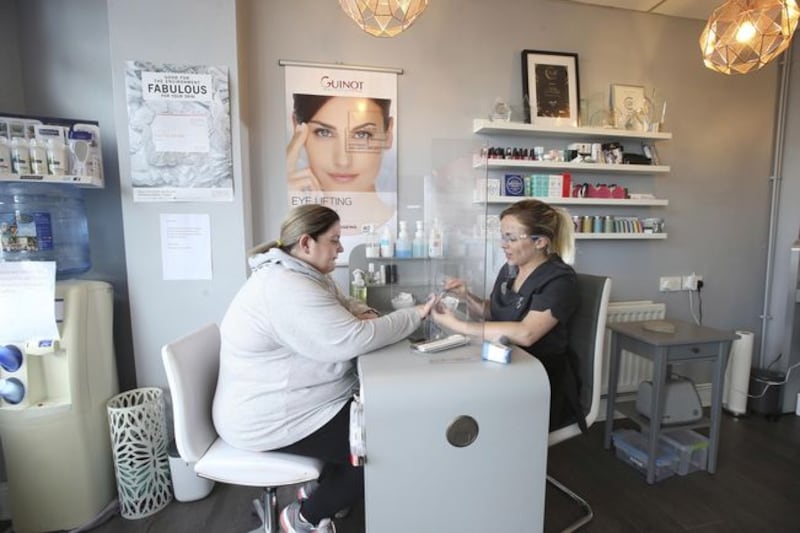“I don’t think I’ve been through such a stressful time.”
Caroline Purdy, owner of award-winning salon Beauty Culture in east Belfast, said the personal and professional challenges of the pandemic have been immense.
Within just a few days in March, Ms Purdy had to contend with the temporary closure of her salon, the announcement of lockdown and her father’s major heart operation.
The 37-year-old’s father was admitted the Royal Victoria Hospital in Belfast in early February.
“He was waiting for surgery for a ruptured valve and he actually got his surgery brought forward,” she said.
He had open heart surgery on Monday, March 23 - the day Prime Minister Boris Johnson announced strict lockdown measures.
And Ms Purdy said she was particularly worried about visiting her father during the pandemic.
“It was very nerve-wracking going up to the hospital,” she said.
“(My dad) was in ICU (intensive care)… I don’t think I’ve been through such a stressful time. It was a lot to take.”
As well as her concern over her father’s health, Ms Purdy said the weeks before lockdown were hugely stressful for her as a business owner.
“The worst anxiety was the two weeks coming up to the lockdown because we knew that it was probably going to happen by looking at Europe,” she said.
“But I didn’t know what was going to happen to my staff. Were they going to be on income support or sick pay? We didn’t really know. When it was released just before lockdown that staff would be furloughed I was so relieved.
“You worry about your staff being able to put food on the table.”

As a small business, Beauty Culture received a £10,000 grant and business rates relief. It was also able to furlough all staff, apart from Ms Purdy herself.
She said she decided not to go on furlough to allow the business to continue selling products and gift cards.
“If I was to furlough myself, as in to receive money each week… then that means I wouldn’t be able to work at all,” she said.
“I wouldn’t be able to sell a gift card. I just didn’t want to shut down completely. I wanted to be able to give people advice on their skin.
“What the £10,000 did was to tide us over to pay any suppliers that we owed at the time of closure and to also give me that float because I had to pay the girls each week. The furlough (payments) didn’t come in until three to four weeks after that.”
As well as home-schooling her six-year-old daughter Jasmine and looking after her three-year-old son Caleb, she posted products to customers with the help of her husband.
Once restrictions around movement began to ease she also hand-delivered some products to customers while on her daily walk with the children.
“I had my six-year-old daughter helping me. She was asking ‘what deliveries are we doing today?’ I was doing that for weeks,” Ms Purdy said.
She also had to manage regular direct debits and pay suppliers, along with the added anxiety of not knowing when she could reopen.
When the Executive did announce a reopening date of July 6 for beauty salons, she said it came as “a great relief”.
To keep in contact with her customers during lockdown, she held Zoom calls with advice on facials.
“I was also selling ‘at home’ facial kits. I would have put in a headband and sponges and miniature products. I did ‘facial Friday’ with a few people joining us.”
She also teamed up with brain injury charity Headway to demonstrate relaxation techniques including a pressure point massage.
Ms Purdy said her customers had been hugely supportive during weeks of uncertainty and were appreciative that she had kept in touch via regular emails.
“People were emailing me with encouragement and saying that they missed a lot of people during lockdown and I was one of them,” she said.
“I was sending emails every week to customers and trying to share what I was doing to de-stress during lockdown.”

The salon has since reopened seven days a week, including five late nights, to accommodate customers.
To help ensure the business can stay open if there is a coronavirus case, the beauty therapists have been split into two ‘bubbles’ of four staff per bubble.
“Because we’re close contact, if there was a Covid case, if a customer came to us and said they had contracted it…we would probably take one team out and still have one of the teams working,” she said.
The salon has introduced rigorous measures including temperature checks for customers, extra cleaning, plastic screens at the till and manicure stations, and pre-appointment consultations which aim to flag up any potential Covid symptoms.
“We’re doing everything we can to ensure we’re not treating anybody who has Covid symptoms,” she said.
Although the new protocols are stringent, Ms Purdy said they are “only a step up from what we did before”.
Staff wear masks and face shields designed for the beauty industry. Staff uniforms are also washed and dried in the salon to avoid any cross-contamination.

Ms Purdy said she had some difficulty sourcing the personal protective equipment (PPE) she needed for staff and would not have been able to open if lockdown rules for her business had been relaxed earlier.
“The specific face shields and face masks are made for our industry,” she said.
“They are entwined with silver to protect our skin. We knew it would be the last week in June before we would receive those so we needed the last few weeks to make sure we had everything.”
Ms Purdy said tougher safety restrictions, including the use of PPE, will be part of beauty businesses for some time.
“I did a general price increase of one pound per treatment but I did not put a PPE surcharge,” she said.
“That’s just my personal choice as a business owner.
“We’ve always been known for our cleanliness and good reputation for the last twenty years. Because of that people do feel safe. Face shields have just become part of our uniform and will be for the foreseeable future."








